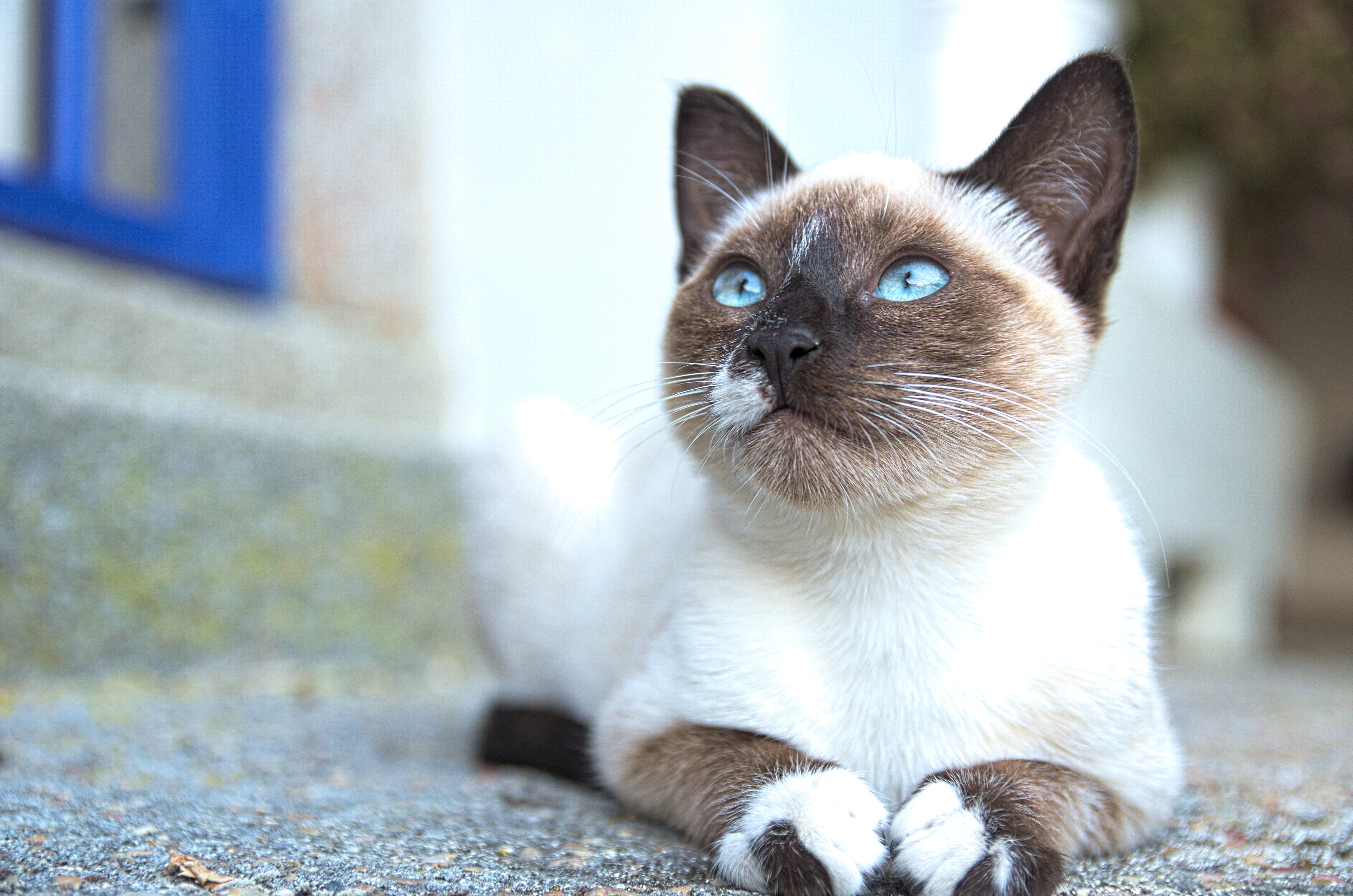Hvað veldur andfýlu í köttum<br>
Ef andardráttur kattarins þíns lyktar illa gæti verið heilsufarsvandamál til staðar. Ef þú hefur tekið eftir að andardráttur kattarins lykti illa, þá er það ekki eðlilegt og krefst frekari rannsókna. Viðvarandi slæm andfýla getur stafað af ýmsum heilsufarsvandamálum, en talið er að um 75% katta yfir þriggja ára séu með einhvers konar tannsjókdóm og slæm andfýla er yfirleitt fyrsta einkenni sem eigendur taka eftir.

Tannsjúkdómar
Lyktarframleiðandi bakteríur sem safnast upp í munni kattarins eru líklegast orsök andfýlunnar. Munnvatn og bakteríur mynda síðan skjöld sem getur safnað steinefnum og orðið að tannsteini ef ekkert er gert. Það getur leitt til tannholdssjúkdóms og sýkingu í stoðvef tannanna. Mikil uppsöfnun tannsteins, slefmyndun, erfiðleikar við að éta eða aðeins bryðja fóður öðru megin auk bólgu í tannholdi eru merki um að kötturinn þinn sé með tannsjúkdóm sem dýralæknirinn ætti að kíkja á.
Fóður
Matarræði getur einnig stuðlað að slæmum andardrætti þegar matarræðið inniheldur fisk eða hráefni sem byggir á lifur. Kettir geta einnig óvart innbyrt aðskotahluti eins og gúmmíbönd eða hárteygjur sem geta festst í munni þeirra og valdið andfýlu. Þetta eru allt orsakir sem auðvelt er að leysa. Allt sem þú þarft að gera er að endurskoða hvernig þú fóðrar köttinn.
Tannholds- og munnbólga
Tannholdsbólga er bóga í tannholdinu, munnbólga er bólga í slímhúð munnsins. Köttum er hætt við að þróa með sér þessa sjúkdóma, venjulega vegna tannsjúkdóma en stundum vegna annarra baktería, vírusa eða ofnæmis. Dýralæknirinn þinn getur ráðlagt þér ef kötturinn þarfnast frekar rannsókna til þess að útiloka sýkingar á við FIV og Caliciveiru.
Efnaskiptasjúkdómar
Stundum er andfýla meira en bara slöpp munnhirða. Í vissum, sjaldgæfari tilfellum getur andfýla verið einkenni alvarlegri innri sjúkdóma á við nýrnabilun, sérstaklega í eldri köttum. Uppsöfnun eiturefna í blóðinu geta leitt til andfýlu, þar sem nýrun starfa ekki eðlilega og verður ofviða og geta ekki lengur afeitrað sig á eðlilegan hátt. Aðrar orsakir þar sem andfýla spilar þátt geta einnig verið sykursýki og lifrarsjúkdómar. Hafir þú áhyggjur, þá er heimsókn til dýralæknis besta leiðin til þess að kanna heilsufar kattarins.
Hvernig er andfýla meðhöndluð
Það fyrsta sem þú þarft að gera ef þú tekur eftir því að kötturinn þinn er með viðvarandi andfýlu er að panta tíma hjá dýralækninum þínum. Það eru svo margar hugsanlegar orsakir að þú munt bæði spara tíma, fyrirhöfn, vanlíðan og peninga með því að láta greina köttinn rétt frá upphafi og ef um alvarlegt vandamál er að ræða getur snemmtækt inngrip hjálpa til við að bæta lífsgæði kattarins.
Hins vegar er líklegast að dýralæknirinn finni minniháttar vandamál og geti meðhöndlað það gegnum tannhreinsun og aðlagað matarræði. ROYAL CANIN® Dental fóðrið inniheldur bæði næringarefni sem takmarka myndun tannsteins auk þess að fóðurlögunin er hönnuð til þess að veita tannburstandi áhrif á tennur kattarins.
Að koma í veg fyrir andfýlu
Besta leiðin til þess að koma í veg fyrir andfýlu er að meðhöndla vandamálið áður en það byrjar. Flest vandamál í munni má leysa með því að halda tönnum kattarins hreinum, líkt og með okkur, er besta leiðin að tannbursta þá reglulega. Það hjálpar til við að fjarlægja skán áður en tannsteinn myndar og dregur úr hættu á tannholdsbólgum.
Margir kettir eru sáttir við tannburstun, sérstaklega ef þeir eru vandir á það ungir. Dýralæknirinn þinn getur gefið þér frekari ráð varðandi val á búnaði og tannkremi, eitt sem þarf þó að muna er að ekki má nota mannatannkrem á ketti. Kötturinn mun bregðast illa viðbraðginu og innihaldsefnin geta haft slæm áhrif á meltinguna.
Þegar þú byrjar að venja köttinn þinn við, leyfði honum að sleikja kattatannkremið af fingrinum þínum. Þegar þeir eru farnir að gera það af ánægðu, prófaðu að lyfta vörinni örlítið upp meðan þeir sleikja tannkremið. Þegar það er komið þá byrjarðu að snerta tennurnar með mjúkum tannbursta eða klút og umbuna þeim svo með verðlaunum á eftir. Prófaðu bara stutt í einu til að byrja með þangað til kötturinn þinn leyfir þér að bursta tennurnar.
Ef þú villt fá frekari stuðning við að halda tannheilsu kattarins góðri, geturðu rætt við dýralækninn þinn um tannheilsufóður frá t.d. ROYAL CANIN®. Það hjálpar til við að fyrirbyggja tannsteinsmyndun og halda tönnum kattarins hreinum og í góðu standi.
Tengdar greinar
Líkaðu við og deildu þessari síðu